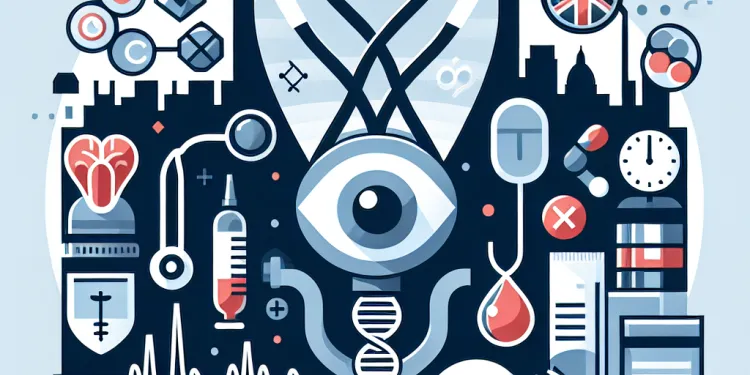
Find Help
More Items From Ergsy search
-
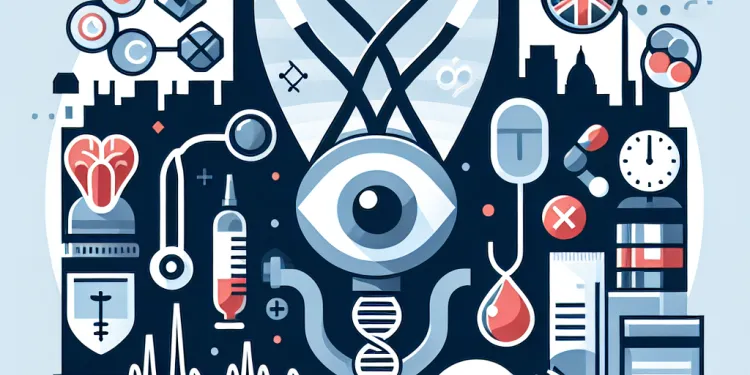
What role do tumor markers play in testicular cancer?
Relevance: 100%
-

What is testicular cancer?
Relevance: 67%
-
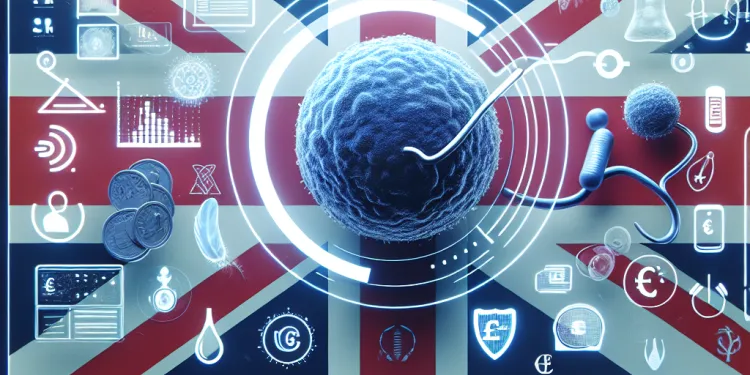
How is testicular cancer diagnosed?
Relevance: 66%
-

What is testicular cancer?
Relevance: 66%
-

What is testicular cancer?
Relevance: 64%
-

What are the stages of testicular cancer?
Relevance: 63%
-

Can testicular cancer spread to other parts of the body?
Relevance: 60%
-
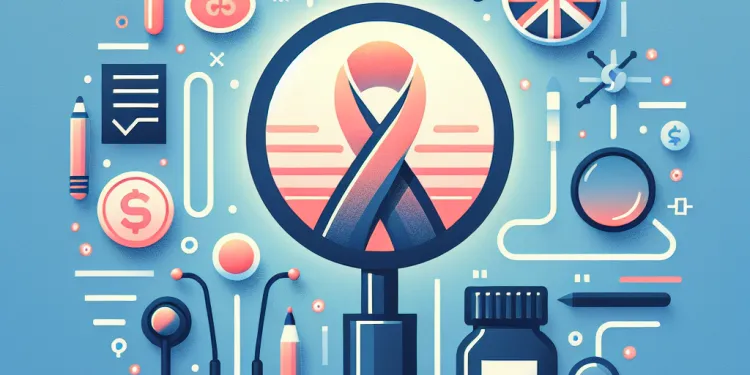
Is testicular cancer treatable?
Relevance: 59%
-

Can testicular cancer recur after treatment?
Relevance: 53%
-
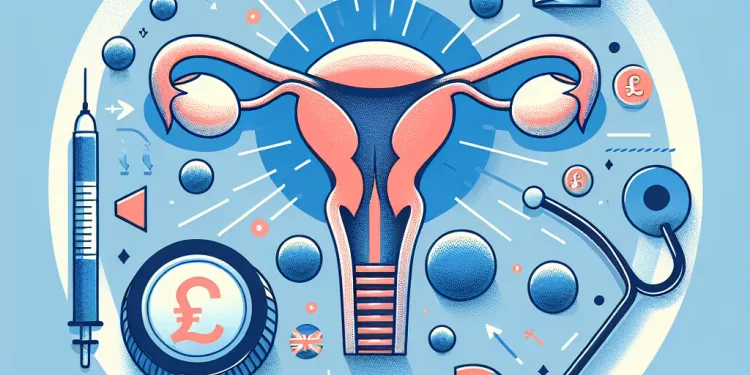
What are the symptoms of testicular cancer?
Relevance: 51%
-

Is fertility affected by testicular cancer?
Relevance: 48%
-

Getting to know your Testicles: Testicular Cancer Awareness with Dr James Howarth, Spilsby Surgery
Relevance: 47%
-

How common is testicular cancer?
Relevance: 46%
-
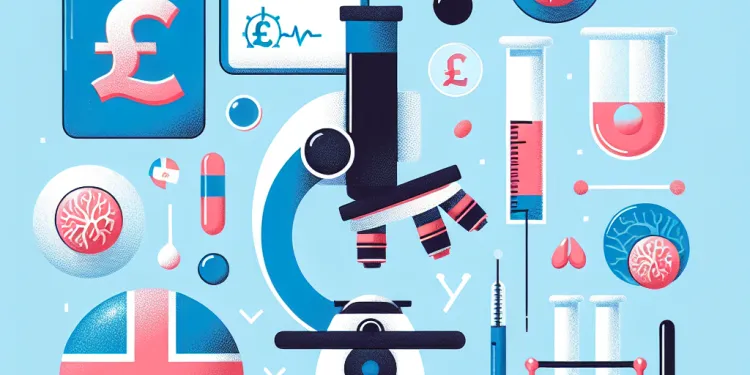
What causes testicular cancer?
Relevance: 46%
-

Who is at risk for testicular cancer?
Relevance: 46%
-

What is the survival rate for testicular cancer?
Relevance: 44%
-

What types of treatments are available for testicular cancer?
Relevance: 43%
-

Are there support groups for those affected by testicular cancer?
Relevance: 42%
-

Can lifestyle changes help prevent testicular cancer?
Relevance: 40%
-

When should I see a doctor about potential testicular cancer?
Relevance: 35%
-

What's the difference between seminomas and non-seminomas?
Relevance: 34%
-

Is there a risk of thyroid tumors with Ozempic?
Relevance: 34%
-

Neuroendocrine tumour patient video
Relevance: 33%
-

What is a seminoma?
Relevance: 33%
-

How can I perform a testicular self-exam?
Relevance: 32%
-

Emma's story: My brain tumour story
Relevance: 31%
-

Ovarian Cancer
Relevance: 28%
-
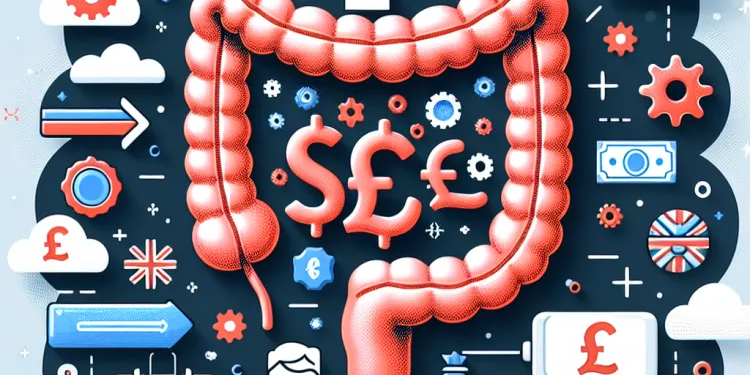
How is the stage of bowel cancer determined?
Relevance: 28%
-

Can bowel cancer spread to other parts of the body?
Relevance: 27%
-

What is Cancer?
Relevance: 26%
-

What is Pancreatic Cancer?
Relevance: 25%
-

How is bowel cancer diagnosed?
Relevance: 24%
-
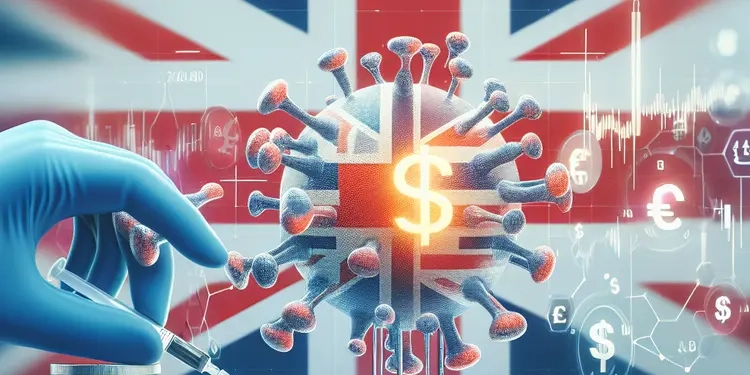
What is Paillon treatment for cancer?
Relevance: 24%
-
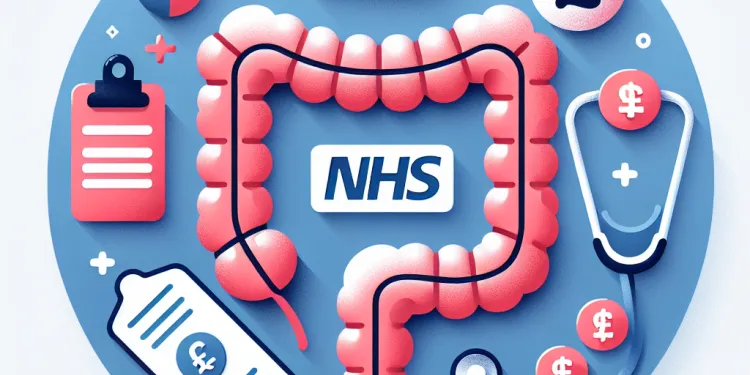
What treatment options are available for bowel cancer?
Relevance: 24%
-

What is Radiotherapy, and its use in treatment for cancers?
Relevance: 23%
-

Endometrial Cancer
Relevance: 23%
-

Treating prostate cancer
Relevance: 23%
-

Breakthrough in Cancer Treatment Offers Hope for Prostate Cancer Patients
Relevance: 23%
-

How does aspirin work to reduce cancer risk?
Relevance: 22%
-

What is Bowel Cancer?
Relevance: 22%
Introduction to Tumor Markers
Tumor markers are substances, often proteins, that are produced by the body in response to cancer or by the cancer tissue itself. They can be found in blood, urine, or tissue samples. In the context of testicular cancer, tumor markers play a crucial role in diagnosis, monitoring, and management.
Common Tumor Markers for Testicular Cancer
In testicular cancer, there are three primary tumor markers that are typically assessed: alpha-fetoprotein (AFP), human chorionic gonadotropin (hCG), and lactate dehydrogenase (LDH). These markers can provide valuable information regarding the presence and progression of the disease.
Role in Diagnosis
Tumor markers are essential in the diagnostic phase of testicular cancer. While they cannot confirm the presence of cancer on their own, elevated levels of AFP and hCG are strongly suggestive of testicular cancer, particularly non-seminomatous germ cell tumours. These markers help in differentiating between seminomatous and non-seminomatous tumours, as seminomas typically do not produce AFP.
Role in Staging
After an initial diagnosis, tumor markers assist in staging the cancer. The levels of AFP, hCG, and LDH can indicate the extent and spread of cancer, as well as correlate with the size and burden of the tumour. These markers help healthcare professionals determine the stage of cancer, which is critical for treatment planning.
Role in Treatment Planning
Tumor marker levels are considered when devising a treatment plan. If high levels of markers persist after surgery, it may indicate residual disease, thus influencing the decision to opt for additional treatments such as chemotherapy or radiotherapy. Markers also help identify high-risk patients who might benefit from more aggressive treatment strategies.
Monitoring Treatment Response
Throughout treatment, measuring tumor markers is vital for assessing the effectiveness of the therapy. A decline in marker levels generally suggests a positive response to treatment, while stable or rising levels may require modifying the treatment approach. This continuous monitoring helps in adjusting therapies to improve patient outcomes.
Role in Follow-Up Care
After successful treatment, tumor markers are used in follow-up care to monitor for recurrence. Regular monitoring of AFP, hCG, and LDH levels can provide early detection of cancer recurrence, allowing for timely intervention. This is crucial for long-term survivorship management in testicular cancer patients.
Conclusion
Tumor markers are indispensable tools in the management of testicular cancer. From aiding in diagnosis and staging to guiding treatment and follow-up care, they provide critical insights that help tailor individualised care for patients. The use of these markers has significantly improved the ability to treat testicular cancer effectively, thereby enhancing survival rates and quality of life for patients.
Introduction to Tumor Markers
Tumor markers are special substances in the body. They can be proteins. They show up when cancer is in the body. They can be found in blood, urine, or tissue. For testicular cancer, these markers help doctors know if someone has cancer. They also help doctors understand how to treat and watch the cancer.
Common Tumor Markers for Testicular Cancer
For testicular cancer, there are three important markers: alpha-fetoprotein (AFP), human chorionic gonadotropin (hCG), and lactate dehydrogenase (LDH). These markers give doctors important clues about the cancer.
Role in Diagnosis
Tumor markers are important in finding out if someone has testicular cancer. High levels of AFP and hCG can mean testicular cancer is present, especially a type called non-seminomatous. These markers help doctors tell if the tumor is non-seminomatous or seminomatous. Seminomatous tumors do not usually produce AFP.
Role in Staging
Once cancer is found, tumor markers help doctors understand how much it has spread. The levels of AFP, hCG, and LDH help doctors figure out the size of the tumor and how much it has grown. This helps them decide the stage of cancer and plan treatment.
Role in Treatment Planning
Doctors look at tumor marker levels when planning treatment. If markers stay high after surgery, it might mean cancer is still there. This can lead to more treatments like chemotherapy or radiotherapy. Markers also help find patients who need stronger treatment.
Monitoring Treatment Response
While getting treatment, checking tumor markers helps see if the treatment is working. If marker levels go down, it usually means treatment is helping. If levels stay the same or go up, doctors might change the treatment plan. Watching these markers helps make treatments better.
Role in Follow-Up Care
After treatment, tumor markers are used to check if cancer comes back. Regular checks of AFP, hCG, and LDH levels help find any cancer return early. This allows quick action to be taken. It is very important for watching testicular cancer in the long run.
Conclusion
Tumor markers are very important tools in treating testicular cancer. They help from the first diagnosis to the follow-up care. These markers give helpful information so doctors can give the best care for patients. Using tumor markers makes treating testicular cancer better and helps patients live longer and healthier lives.
Frequently Asked Questions
What are tumor markers?
Tumor markers are substances, often proteins, that are produced by cancer cells or by the body in response to cancer.
Which tumor markers are relevant for testicular cancer?
The main tumor markers for testicular cancer are alpha-fetoprotein (AFP), human chorionic gonadotropin (HCG), and lactate dehydrogenase (LDH).
How are tumor markers used in diagnosing testicular cancer?
Elevated levels of tumor markers can indicate the presence of testicular cancer, assisting in diagnosis alongside imaging and biopsy.
Can tumor markers differentiate between types of testicular cancer?
Yes, different testicular cancers can elevate different markers, such as non-seminomas elevating AFP and seminomas often elevating HCG.
Are tumor marker tests alone sufficient for diagnosing testicular cancer?
No, tumor marker tests are used alongside other diagnostic tools like imaging and histological examinations.
How do tumor markers help in monitoring treatment response?
Tumor marker levels are measured during and after treatment to assess how well the cancer is responding to therapy.
Can tumor markers predict the prognosis of testicular cancer?
Yes, high levels of certain tumor markers at diagnosis can be associated with a poorer prognosis.
Are tumor markers used in follow-up care?
Yes, regular monitoring of tumor marker levels can help detect recurrence of testicular cancer early.
What might cause false positives in tumor marker tests?
False positives can occur due to conditions like liver disease or other non-cancerous conditions that affect marker levels.
How often should tumor markers be measured after treatment?
The frequency of monitoring varies depending on the risk of recurrence and the initial treatment plan, but it's typically every few months initially.
Do elevated tumor markers always mean cancer recurrence?
Not always, as other conditions can cause elevations, but elevated markers warrant further investigation.
What is the role of LDH as a tumor marker in testicular cancer?
LDH can be elevated in many conditions but when used with AFP and HCG, it can help in evaluating the extent and activity of testicular cancer.
Why is AFP not elevated in seminomas?
AFP is not typically produced by seminomas, which is why its levels remain normal in this type of testicular cancer.
Can tumor marker levels change over the course of treatment?
Yes, levels usually decrease in response to effective treatment, which is a good indicator.
What might cause tumor marker levels to increase after treatment?
An increase could suggest recurrence or progression of cancer, or it could be due to another non-cancerous condition.
Are tumor markers useful in detecting testicular cancer in early stages?
Tumor markers are more effective in assessing the extent of disease and treatment response than in early detection.
Is a biopsy necessary if tumor markers are elevated?
A biopsy can provide a definitive diagnosis and is usually necessary even if tumor markers are elevated.
How do HCG levels correlate with the type of testicular cancer?
HCG is often elevated in choriocarcinoma and can also be elevated in seminomas, which helps in differential diagnosis.
Can lifestyle or dietary factors influence tumor marker levels?
Generally, tumor marker levels reflect disease status rather than lifestyle or diet, but certain non-malignant diseases may impact levels.
Why is monitoring tumor markers important in high-risk patients?
In high-risk patients, regular monitoring can lead to early detection and treatment of recurrences, improving outcomes.
What are tumor markers?
Tumor markers are special signs that doctors look for in the body. These signs can help doctors find out if someone has cancer. Tumor markers are like clues that tell doctors what is happening in the body.
Here are some tools or techniques that can help understand tumor markers better:
- Simple words: Use easy and clear words to talk about tumor markers.
- Pictures and diagrams: Look at pictures or drawings to see what tumor markers are.
- Ask questions: If you don't understand something, ask for help.
Tumor markers are things in the body. They are often special proteins. Cancer cells or the body make these when there is cancer.
What tumor markers are important for testicular cancer?
Tumor markers are special signs doctors look for to help find and understand cancer. They are like clues. For testicular cancer, these markers are important to know:
- AFP: This stands for Alpha-Fetoprotein. High levels could mean testicular cancer.
- HCG: This is Human Chorionic Gonadotropin. If the levels are high, it might be a sign of some testicular cancers.
- LDH: Lactate Dehydrogenase is another marker. High levels can help doctors understand the cancer.
If you are trying to learn about these, you can use drawings or simple diagrams. They can help make things clearer. You can also ask someone to explain in a way that makes sense to you, or use apps that read the text aloud.
The main signs that doctors look for to find testicular cancer are called tumor markers. These markers have big names: alpha-fetoprotein (AFP), human chorionic gonadotropin (HCG), and lactate dehydrogenase (LDH).
How do doctors use tumor markers to find testicular cancer?
High levels of certain chemicals in the blood can show that a person might have testicular cancer. These chemicals help doctors figure out what's wrong, along with taking pictures of the body and looking at a small piece of tissue.
Can tumor markers tell the difference between types of testicular cancer?
Yes, there are different types of testicular cancer. They can cause different markers in the body to go up. For example, non-seminomas can make AFP go up, and seminomas can make HCG go up.
If you find this hard to read, you can try reading one sentence at a time. You might also find it helpful to have someone read it with you.
Can doctors use only tumor marker tests to find testicular cancer?
No, tests that look for tumor markers are not used alone. They are used with other tools, like pictures of inside the body (imaging) and looking at tissue under a microscope (histological exams).
How do tumor markers help check if treatment is working?
Tumor markers are special clues. They are made by cancer cells.
Doctors look at these clues to see if the cancer treatment is working.
If the tumor marker numbers go down, it is a good sign. It means the treatment might be helping.
Tools like charts or picture graphs can help show how the numbers change over time.
Doctors check tumor marker levels to see if the medicine is working. They do this during and after treatment.
Can tumor markers show how testicular cancer will progress?
Yes, when some special markers are very high when someone is first diagnosed, it can mean the person might not get better easily.
Do doctors use tumor markers after treatment?
Yes, checking tumor markers can help find testicular cancer early if it comes back.
What can make tumor marker tests show wrong results?
Sometimes tests can show cancer when there is none. Here are some things that might cause this: 1. **Other illnesses**: Some other illnesses can make test results look like there is cancer. 2. **Medicines**: Certain medicines can change test results. 3. **Lab mistakes**: If something goes wrong in the lab, results might be wrong. **Helpful Tip**: Always talk to your doctor if you are unsure about test results. A second test can sometimes help.Sometimes, test results can be wrong. This can happen if someone has liver problems or other health issues that are not cancer. These problems can change the test's results.
How often should we check tumor markers after treatment?
We should check tumor markers to see how you are doing after treatment. Ask your doctor how often you need these checks. They will know the best plan for you.
To help you remember:
- Write down the schedule in a calendar.
- Set reminders on your phone.
- Have someone remind you when it’s time.
How often you need check-ups can change. It depends on how likely it is that the issue comes back and what treatment you had at the start. At first, you usually have check-ups every few months.
Do Higher Tumor Markers Mean Cancer Came Back?
High levels can happen for different reasons. It's important to check and find out more. Ask a doctor to help figure it out.
What does LDH do in testicular cancer?
LDH is a thing doctors look at to understand testicular cancer. It helps them see how the cancer is doing.
If you need help reading, you can:
- Ask someone to read with you.
- Use an app that reads text out loud.
- Take your time and read slowly.
LDH can be high in many sicknesses. But when doctors use it with AFP and HCG, it can help check how much and how active testicular cancer is.
- Ask a doctor or nurse to explain any hard words.
- Try reading with a friend or family for help.
- Use a dictionary if you find a word you don't know.
Why is AFP not high in seminomas?
AFP is a type of protein.
It does not go up with seminomas, which are a kind of cancer.
Seminomas do not make AFP. That is why AFP stays the same.
If you need help reading, you can ask a friend or use a tool that reads text out loud.
Seminomas are a type of testicular cancer. They do not usually make AFP, so AFP levels stay normal with seminomas.
Do tumor marker levels change during treatment?
Yes, tumor marker levels can change when someone is getting treatment for cancer.
Tumor markers are like special signs in the blood that help doctors understand the cancer. They can go up or down with treatment.
It is important to keep checking these levels to see how well the treatment is working.
Using pictures or charts can help you understand this better.
Yes, when treatment works well, levels usually go down. This is a good sign.
Why might tumor marker levels go up after treatment?
If the numbers go up, it might mean the cancer is coming back or getting worse. But, it could also be caused by something that is not cancer.
Can tumor markers help find testicular cancer early?
Tumor markers are better at checking how serious a disease is and how well treatment is working. They are not as good for finding a disease early.
Do I need to have a biopsy if my tumor markers are high?
If your doctor says your tumor markers are high, you might need a biopsy. A biopsy is a test to check for cancer. Your doctor will look at a tiny piece of your body under a microscope. This helps to find out if you have cancer. Here are some tips to help:
- Ask your doctor to explain things with simple words.
- Use pictures or drawings to understand better.
- Bring someone you trust to help you listen and remember.
A biopsy is a test that helps doctors know for sure if there is a disease. It is important to do this test even if other tests show a problem.
Here are some tools and tips that might help:
- Ask your doctor to explain things in a simple way.
- Use pictures or videos to understand better.
- Bring a friend or family member to help you remember what the doctor says.
What do HCG levels tell us about the kind of testicular cancer?
Testicular cancer is a type of cancer that starts in the testicles. The testicles are a part of the body that makes sperm.
Doctors can do tests to find out if someone has testicular cancer. One thing they check is called HCG levels. HCG is a type of hormone that can be higher if someone has testicular cancer.
By looking at the HCG levels, doctors can learn about the type of testicular cancer. Some types of testicular cancer make the HCG levels go up more than others.
If you want to understand this better, you can:
- Ask a doctor or nurse to explain it to you using simple words.
- Use pictures or videos to help you understand.
HCG can be high in a type of cancer called choriocarcinoma. It can also be high in another type of cancer called seminoma. This can help doctors figure out what kind of cancer it is.
Can the way we live or what we eat change tumor marker levels?
The way we live and what we eat can change our health. Some things might affect tumor marker levels. Tumor markers help doctors learn about cancer.
Here is what you can do:
- Eat healthy food like fruits and vegetables.
- Exercise regularly, like going for a walk or playing outside.
- Visit the doctor for check-ups.
If you need help understanding this, ask a family member or a friend. You can also use pictures or videos to learn more.
Usually, tumor marker levels show the condition of a disease. They do not change much with food or lifestyle. But, some other illnesses that are not cancer can change these levels.
Why is it important to check tumor markers in people who might get sick?
Tumor markers are tiny signs inside the body. They can show if someone might have cancer.
It is important to check these markers often if a person is at risk. This can help doctors find cancer early and keep the person healthy.
Supportive Tools:
- Ask a friend or family member to help you read and understand the information.
- Use a magnifying glass if the words are too small.
- Take notes or draw pictures to help remember what you learn.
For people who have a higher chance of getting sick again, visiting the doctor often can help find and treat problems early. This can make them feel better and get healthy faster.
Useful Links
This website offers general information and is not a substitute for professional advice.
Always seek guidance from qualified professionals.
If you have any medical concerns or need urgent help, contact a healthcare professional or emergency services immediately.
Some of this content was generated with AI assistance. We’ve done our best to keep it accurate, helpful, and human-friendly.
- Ergsy carfully checks the information in the videos we provide here.
- Videos shown by Youtube after a video has completed, have NOT been reviewed by ERGSY.
- To view, click the arrow in centre of video.
- Most of the videos you find here will have subtitles and/or closed captions available.
- You may need to turn these on, and choose your preferred language.
- Go to the video you'd like to watch.
- If closed captions (CC) are available, settings will be visible on the bottom right of the video player.
- To turn on Captions, click settings .
- To turn off Captions, click settings again.
More Items From Ergsy search
-

What role do tumor markers play in testicular cancer?
Relevance: 100%
-

What is testicular cancer?
Relevance: 67%
-

How is testicular cancer diagnosed?
Relevance: 66%
-

What is testicular cancer?
Relevance: 66%
-

What is testicular cancer?
Relevance: 64%
-

What are the stages of testicular cancer?
Relevance: 63%
-

Can testicular cancer spread to other parts of the body?
Relevance: 60%
-

Is testicular cancer treatable?
Relevance: 59%
-

Can testicular cancer recur after treatment?
Relevance: 53%
-

What are the symptoms of testicular cancer?
Relevance: 51%
-

Is fertility affected by testicular cancer?
Relevance: 48%
-

Getting to know your Testicles: Testicular Cancer Awareness with Dr James Howarth, Spilsby Surgery
Relevance: 47%
-

How common is testicular cancer?
Relevance: 46%
-

What causes testicular cancer?
Relevance: 46%
-

Who is at risk for testicular cancer?
Relevance: 46%
-

What is the survival rate for testicular cancer?
Relevance: 44%
-

What types of treatments are available for testicular cancer?
Relevance: 43%
-

Are there support groups for those affected by testicular cancer?
Relevance: 42%
-

Can lifestyle changes help prevent testicular cancer?
Relevance: 40%
-

When should I see a doctor about potential testicular cancer?
Relevance: 35%
-

What's the difference between seminomas and non-seminomas?
Relevance: 34%
-

Is there a risk of thyroid tumors with Ozempic?
Relevance: 34%
-

Neuroendocrine tumour patient video
Relevance: 33%
-

What is a seminoma?
Relevance: 33%
-

How can I perform a testicular self-exam?
Relevance: 32%
-

Emma's story: My brain tumour story
Relevance: 31%
-

Ovarian Cancer
Relevance: 28%
-

How is the stage of bowel cancer determined?
Relevance: 28%
-

Can bowel cancer spread to other parts of the body?
Relevance: 27%
-

What is Cancer?
Relevance: 26%
-

What is Pancreatic Cancer?
Relevance: 25%
-

How is bowel cancer diagnosed?
Relevance: 24%
-

What is Paillon treatment for cancer?
Relevance: 24%
-

What treatment options are available for bowel cancer?
Relevance: 24%
-

What is Radiotherapy, and its use in treatment for cancers?
Relevance: 23%
-

Endometrial Cancer
Relevance: 23%
-

Treating prostate cancer
Relevance: 23%
-

Breakthrough in Cancer Treatment Offers Hope for Prostate Cancer Patients
Relevance: 23%
-

How does aspirin work to reduce cancer risk?
Relevance: 22%
-

What is Bowel Cancer?
Relevance: 22%


